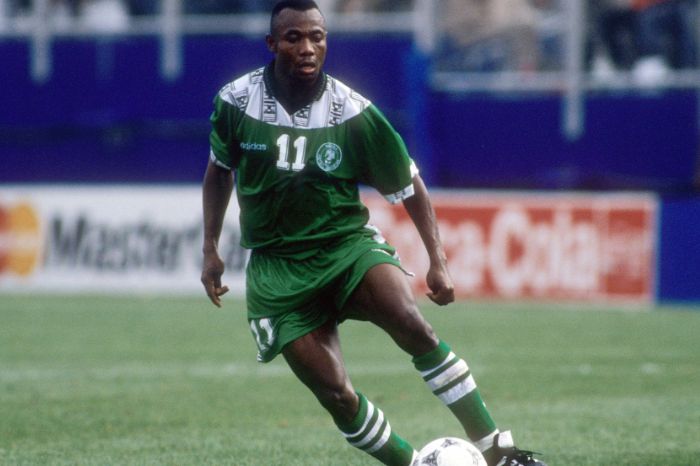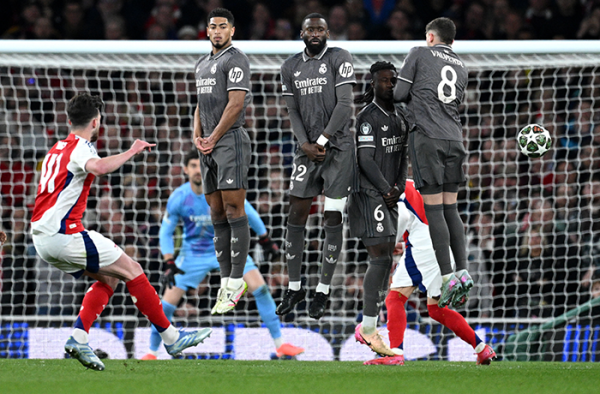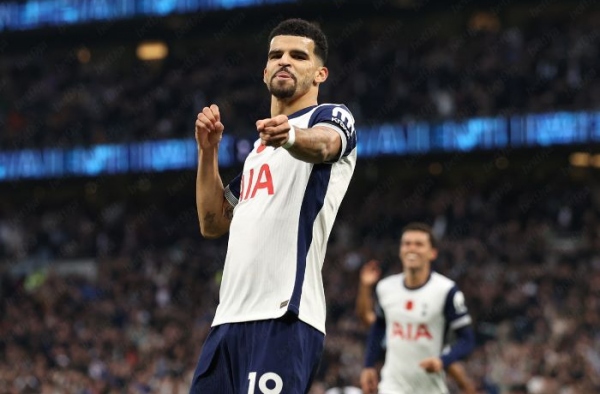Follow @Emiearth on X for more expert analysis.
The football world witnessed one of the greatest sporting sequels as Inter and Barcelona delivered a game for the ages in their UEFA Champions League semi-final clash at the San Siro. Remarks on social media quickly ranked it among the greatest match-ups – a sentiment that’s hard to dispute, as I too consider it arguably the best UCL semi-final ever, including the officiating.
Several Nigerian players have also made their mark in the same stage. Finidi George and Nwankwo Kanu were key figures in Ajax’s golden era of the mid-1990s, with Finidi playing a major role in their 1995 triumph and Kanu appearing in two finals. Obafemi Martins shone for Inter Milan in the 2002/03 semis, scoring against rivals AC Milan, while John Obi Mikel was vital in Chelsea’s 2012 campaign, helping them overcome Barcelona en route to their historic title.
? ????? ??? ????! ?
— Bet9ja: The home of #betBOOM! ? (@Bet9jaOfficial) May 7, 2025
Now you can win up to ?1 BILLION! ?
Even ???? explosive odds! Even ???? chances to win! ?
Are you playing with Poco? ?#CatchTheBOOM pic.twitter.com/6G8DMydJib
More recently, young talents like Kelechi Iheanacho and Samuel Chukwueze have carried the torch. Iheanacho featured in Manchester City’s 2016 semi-final against Real Madrid at just 19, while Chukwueze helped Villarreal reach the last four in 2022, famously netting against Bayern Munich in the quarters.
I asked Emmanuel Amunike, the former Nigerian winger who won the 1994 African Player of the Year award and also wore the Catalan colors of FC Barcelona, what it takes for a player to make it to the big league, and why it seems to be a struggle for some Nigerian players:
He said: “The problem is that the game continues to evolve, and what works today may be outdated tomorrow. As football grows, so do the challenges. It’s up to our players to adapt to these challenges.
“When you create an environment where everything feels like a jamboree, that’s the mentality people will develop. But when you foster an environment where players understand their responsibility is to do their job and give their best at every moment, that’s the mentality they will adopt.
“If the game is changing and we’re not doing enough as a nation to develop our football, then we can’t expect people to give us what they don’t have. I speak from experience. The players we talk about — like Iheanacho, Muya Yahaya, Kelechi Nwakali — none of them played in the league; they all came from academies. But, as I always say and believe, no human being is short of knowledge. You must always strive to add value to others.
“That’s what my team and I did to help these players stand out, and as a result, many clubs came for them. However, if we focus solely on talent, we forget that just being talented is rarely enough. In fact, a player who is more knowledgeable about the game will make better decisions on the field than someone who relies only on talent.
? ?5 ??????? ???? ????? ??? ?????! ?
— Bet9ja: The home of #betBOOM! ? (@Bet9jaOfficial) May 7, 2025
1 lucky Bet9ja user will each win N5 Million every UCL round! ?
What are you waiting for? ?
“This has always been Nigeria’s problem. Do we have the resources to develop our football and our players? Yes, we have those resources. But we also face cultural, religious, and ethnic sentiments—who you know, where you’re from, and who your godfather is—that hinder progress in our football.
“However, as a country, if we decide to excel and become world beaters, there’s nothing stopping us. We have the means, but the question is: are we ready to do it? It’s time to look ourselves in the mirror and tell ourselves the truth.”
Amunike starred for Nigeria at the 1994 World Cup and won Olympic gold in 1996. At club level, he also played for Zamalek, and Sporting CP. He later transitioned into coaching, notably guiding Nigeria’s U-17 team to World Cup glory.



